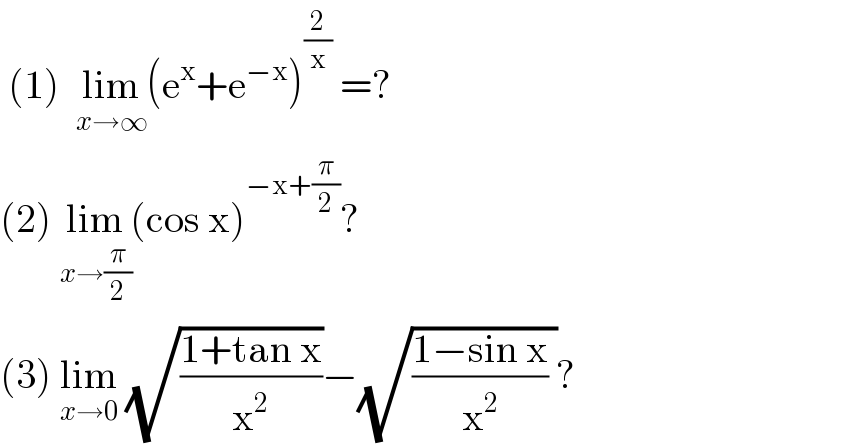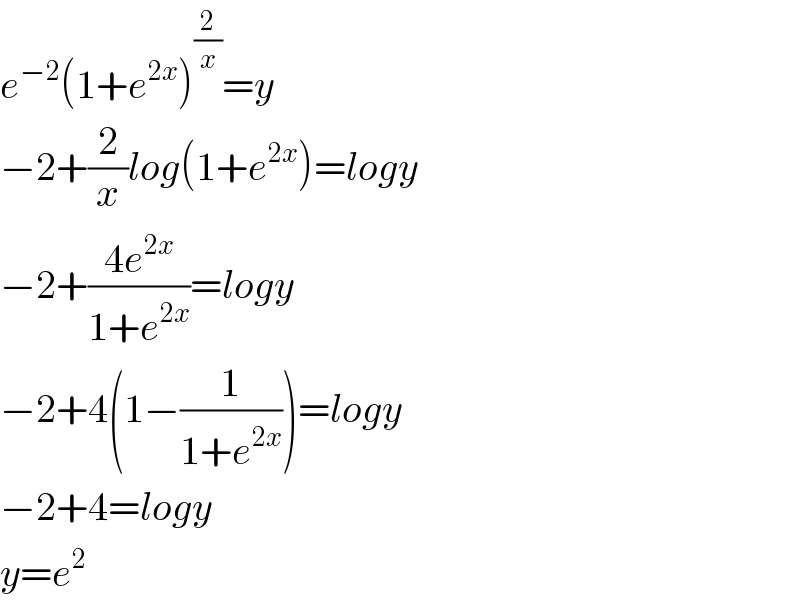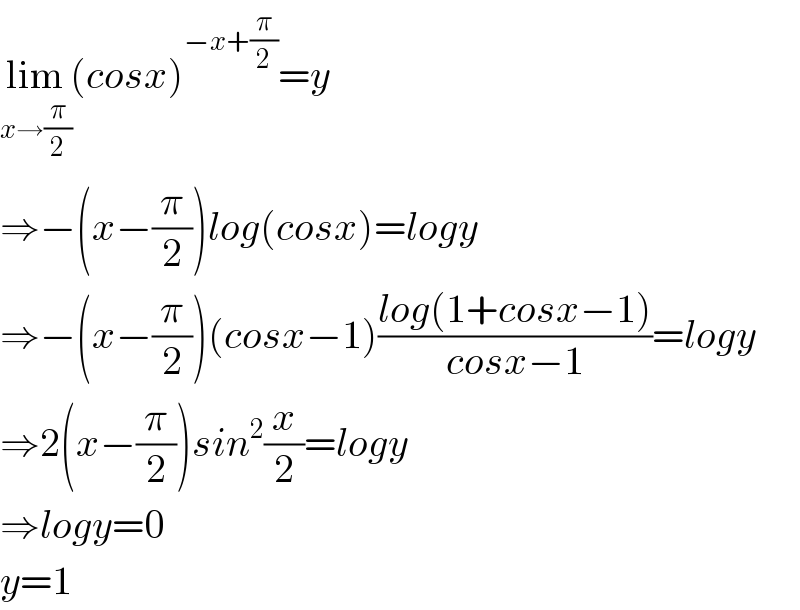
Question and Answers Forum
Question Number 112273 by bemath last updated on 07/Sep/20

Commented by Dwaipayan Shikari last updated on 07/Sep/20

Commented by Dwaipayan Shikari last updated on 07/Sep/20

Answered by bemath last updated on 07/Sep/20

Commented by mohammad17 last updated on 07/Sep/20

Commented by bemath last updated on 07/Sep/20

